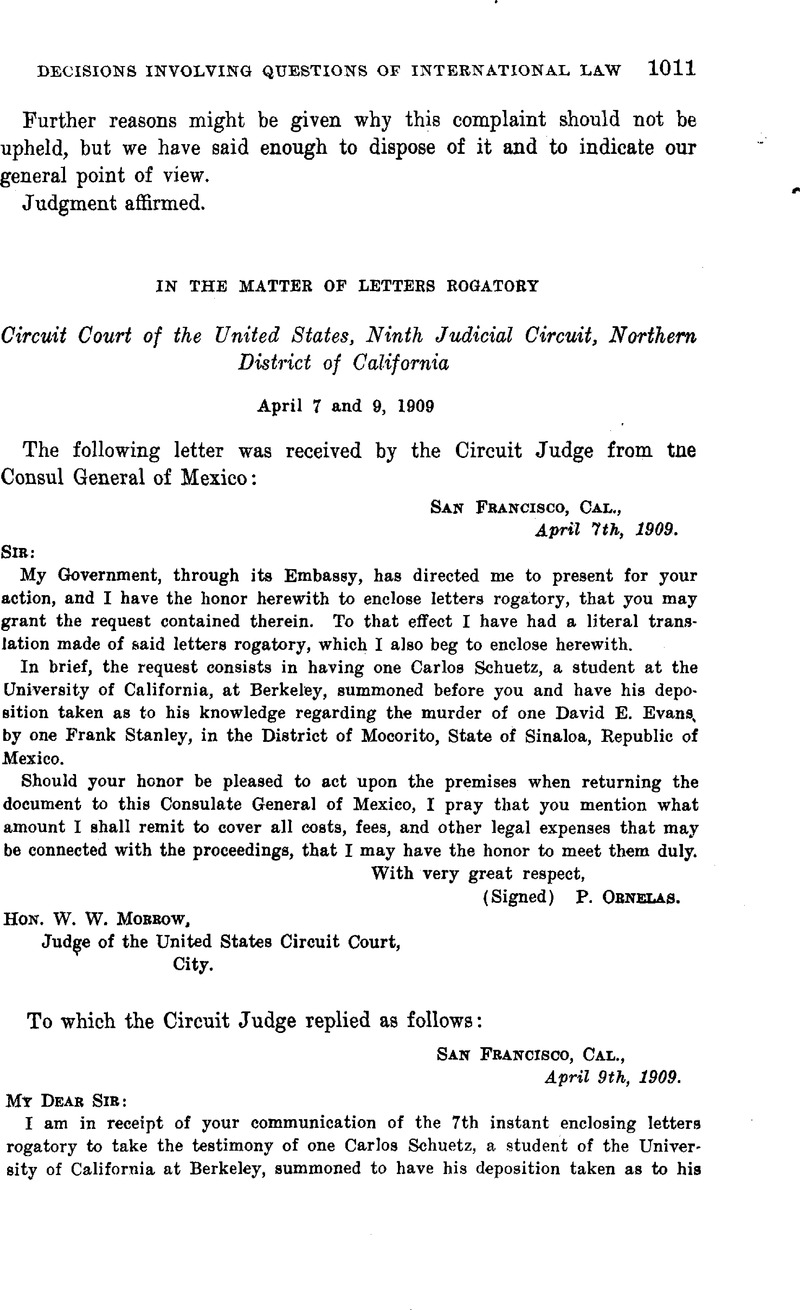Letters Rogatory vs. Mutual Legal Help Treaties: Secret Differences Discussed
Letters Rogatory vs. Mutual Legal Help Treaties: Secret Differences Discussed
Blog Article
Letters Rogatory Explained: Facilitating Legal Participation In Between Countries

Definition of Letters Rogatory
Letters rogatory are formal requests made by a court in one territory to a court in one more jurisdiction, looking for assistance in acquiring proof or statement for a legal proceeding. This step-by-step device is necessary in the context of international legislation, where lawful systems might differ, and cross-border teamwork is necessary. Letters rogatory assist in the celebration of information that may be critical for adjudicating cases, particularly in circumstances entailing complex multinational problems.
Commonly, these requests occur in civil, criminal, or administrative issues where an event calls for proof that lies outside the jurisdiction of the requesting court. The letters act as a way to make sure that the concepts of due procedure are promoted, making it possible for courts to access evidence that might otherwise remain inaccessible because of geographic or legal obstacles.
The usage of letters rogatory is controlled by international treaties, bilateral contracts, or domestic laws, which delineate the treatments and obligations of the courts entailed. It is very important to note that the implementation of such demands is not assured; they rely on the regulations and methods of the jurisdiction getting the letter. Thus, letters rogatory are a critical tool for fostering lawful participation and making certain justice across borders.
The Process of Issuing Letters Rogatory
Issuing letters rogatory entails an organized procedure that ensures compliance with both residential and international lawful requirements. The asking for party, typically a court or lawful authority, prepares an official request detailing the nature of the aid sought, the evidence or info needed, and the lawful basis for the request. This document needs to be accurate to promote understanding by the foreign jurisdiction.

The next action entails sending the letters rogatory to the marked international authority. This is usually done via polite networks or global lawful support structures, ensuring that the demand is obtained and acknowledged by the international court. The international court after that processes the request according to its very own lawful procedures, ultimately reacting to the asking for celebration with the popular information or proof, therefore helping with international lawful participation.
Value in International Legislation
The significance of letters rogatory in global legislation can not be overstated, as they offer as a critical system for judicial collaboration across boundaries. These formal ask for support in lawful issues allow courts in one territory to inquire, evidence, or the visibility of witnesses from one more jurisdiction, therefore helping with the administration of justice in multinational cases.
Letters rogatory are specifically essential in the context of globalization, where lawful conflicts frequently extend multiple nations. They enable the collection of proof that might or else be inaccessible, making certain that legal process are informed and fair. By cultivating partnership in between judicial systems, letters rogatory help maintain the rule of legislation and advertise mutual regard amongst nations.
Additionally, the usage of letters rogatory demonstrates a dedication to global norms and principles of teamwork, mirroring the interconnected nature of contemporary lawful methods. It illustrates the importance of sticking to recognized treatments and treaties, such as the Hague Convention, which supplies a structure for these demands - Letters rogatory. Ultimately, letters rogatory improve the efficiency of lawful processes, guaranteeing that justice is not prevented by geographical borders
Challenges and Limitations
Despite their relevance, letters rogatory face a number of difficulties and constraints that can restrain their effectiveness. One primary issue is the varying legal frameworks and treatments throughout territories, which can cause misconceptions and hold-ups in the implementation of demands. Various nations might have distinctive needs for the legitimacy of letters rogatory, making complex the procedure better.
Furthermore, the usually protracted nature of international lawful cooperation can hinder timely access to proof or witnesses. This hold-up might detrimentally influence legal proceedings or recurring investigations, especially in cases requiring immediate action. The lack of resources and training in some territories can result in inadequate handling of demands, leading to insufficient or incomplete responses.
Cultural differences and differing mindsets in the direction of legal straight from the source processes can additionally position significant obstacles. As an example, countries with less formal lawful systems may struggle to abide with the step-by-step rigor anticipated in letters rogatory. Political stress between countries can influence the readiness to perform demands, resulting in a lack of participation and decreasing the address energy of this system in global legislation. These obstacles necessitate continual dialogue and reform to enhance the efficacy of letters rogatory in lawful cooperation.
Study and Examples

On the other hand, obstacles can occur, as seen in an instance involving a European nation seeking evidence in a recurring criminal matter from a non-EU nation - Letters rogatory. The procedure was postponed because of bureaucratic hurdles and varying legal requirements, ultimately preventing the examination
These examples highlight that while letters rogatory can facilitate international collaboration and accelerate lawful process, they additionally highlight the demand for clear interaction and understanding of legal structures in between countries. Such study emphasize the significance of refining this tool to improve performance and effectiveness in global lawful issues.
Final Thought
In summary, letters rogatory serve as a crucial system for promoting legal teamwork between nations, making certain the collection of evidence and testament throughout territories. Their importance in international legislation can not be overemphasized, as they advertise due process and boost the performance of cross-border legal proceedings.
Letters rogatory are formal demands made by a court in one territory to a court in one more jurisdiction, looking for support in acquiring proof or testament for a lawful proceeding. The requesting event, typically a court or lawful authority, drafts a formal demand describing the nature of the help looked for, the evidence or info required, and the lawful basis for the request. The international court then refines the request according to its own legal treatments, eventually responding to the requesting party with the sought-after info or proof, thus facilitating worldwide legal teamwork.
In addition, the usage of letters rogatory shows a important link dedication to global standards and concepts of teamwork, showing the interconnected nature of modern lawful methods.International lawful teamwork through letters rogatory is not without its real-world effects, as highlighted by various situation studies that highlight both challenges and successes.
Report this page